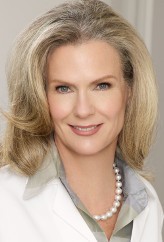
10 Jul Shining Sunlight on Sunscreens and Sunburns
MedicalResearch.com Interview with:
Dr. Janet Prystowsky, MD
Dr. Prystowsky is a leading board-certified dermatologist in
New York City.
In addition to her private practice, Dr. Prystowsky is a senior attending physician at Mount Sinai Roosevelt/St. Luke’s Medical Center.
http://www.janetprystowskymd.com/
MedicalResearch.com: Are all sunscreens created equally?
Response: Not all sunscreens are created equally. Always choose a broad-spectrum sunscreen that is water resistant if you are planning outdoor sports (with sweating) or swimming. Water resistance is a must when you are swimming or sweating (and who isn’t sweating on a hot summer day?)
However, you do not need water resistance if you are walking a few blocks in moderate temperatures. In that situation, a moisturizer sunscreen that is not water resistant is OK and may feel more comfortable on your skin.
As far as ingredients go, your best choice is a mineral based sunscreen with zinc oxide and/or titanium dioxide.
Sunscreens that are not broad spectrum may protect you from sunburns but will not protect you from photodamage that can lead to premature aging and skin cancer.
Mineral based sunscreens are preferable over chemical sunscreens because the long-term effects of chemical sunscreens aren’t well understood. What we do know is that chemical sunscreens can absorb into our bloodstream and potentially have hormonally disruptive effects.
MedicalResearch.com: Can using a less expensive brand instead of a name brand have consequences for our skin?
Response: Price isn’t the issue. If you can find a sunscreen that ticks the boxes I’ve already mentioned at a cheaper cost, then go for it. Be sensible, though. Counterfeit products do exist. If the price seems too good to be true, consider where you are buying the product from. A drugstore will likely have safe products.
MedicalResearch.com: Which type of sunscreen offers more protection, spray or lotion?
Response: I prefer lotions because it’s harder to miss a spot when you are actively rubbing the product on your body. Sprays can tend to cause spotty coverage when people forget to rub it in. I also think that inhaling sunscreen sprays is not a good idea. I find it rude when spraying folks are up wind and I have to breathe in the spray that missed their skin. What’s good on the surface isn’t necessarily good to inhale.
MedicalResearch.com: What exactly does SPF/UVA/UVB mean to you and your health and which is best for your skin type?
Response: SPF stands for Sun Protection Factor. The higher the number, the higher the rating of protection. Sunscreens with higher SPF’s have a higher concentration of sun screening. Since many people don’t use enough sunscreen, I like to tell people that their SPF 50 will give them about an SPF 25 amount of protection, and SPF 30 will give them about an SPF 15 amount of protection. Try to use about twice as much sunscreen as you think you need if you want the SPF to match its rating. If that is too slimy (and it is) then pick a higher number like 70 or 100 and use a reasonable amount. Your skin will feel less gloppy and you’ll get a decent SPF of 35-50, I estimate.
UVA and UVB stand for Ultraviolet A and B radiation. When the sun emits radiation, some of it is visible to us. We call this the visible spectrum of light. The visible spectrum ranges from red to violet. Ultraviolet radiation is just outside of our visible spectrum. Some sunscreens block UVB, which causes sunburns, skin cancer, and premature photoaging; yet fail to block UVA which causes a lot less sunburn but nonetheless causes premature photoaging and skin cancer. Broad-spectrum sunscreens block both UVA and UVB light – covering all the bases from sunburn, to photoaging and skin cancer.
MedicalResearch.com: Is it true that modern sunscreens can be detrimental to ocean coral?
Response: Oxybenzone has contributed towards the bleaching and death of coral reefs. It easily washes off when swimming and has even been detected in drinking water. Wastewater treatment plants cannot effectively remove it.
MedicalResearch.com: Should babies have sunscreen applied?
Response: Babies should avoid intense sunlight and should not wear commercial sunscreen until they are at least 6 months old. A baby’s skin is much more absorbent than an adult. However, plain USP zinc oxide can be thinly applied to infants sparingly to provide some protection for exposed surfaces (e.g. face and arms) on a sunny day. Do not apply to whole body as it will be too occlusive to the baby’s sweat pores.
MedicalResearch.com: Any suggestions for handling a sunburn if it does occur? Does menthol shaving cream work?
Response: The menthol will be soothing. I have seen after sun creams with menthol in it. But, you don’t need shaving cream. I personally recommend Livad Skin Care’s After Sun Cream. It’s great at reducing redness, inflammation, and preventing peeling. It uses natural vitamins and antioxidants that are essential to our skin.
[wysija_form id=”3″]
The information on MedicalResearch.com is provided for educational purposes only, and is in no way intended to diagnose, cure, or treat any medical or other condition. Always seek the advice of your physician or other qualified health and ask your doctor any questions you may have regarding a medical condition. In addition to all other limitations and disclaimers in this agreement, service provider and its third party providers disclaim any liability or loss in connection with the content provided on this website.
Last Updated on July 10, 2018 by Marie Benz MD FAAD
